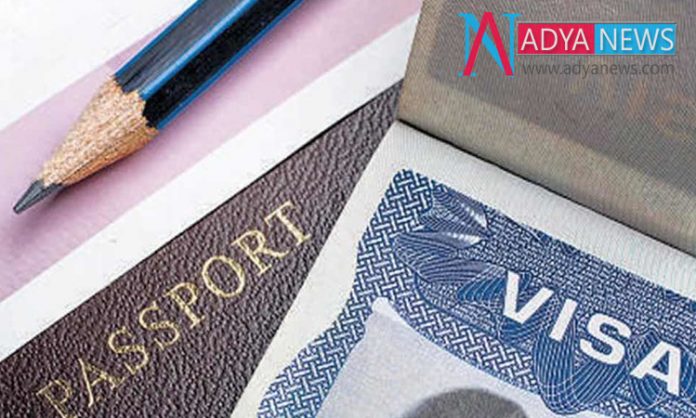From India About 3 consultants have been accused in the US of visa fraud for supposedly submitting trick applications for H-1B visas to pick up an upper hand over contending firms. A government fantastic jury a month ago prosecuted Kishore Dattapuram, of Santa Clara, Kumar Aswapathi, of Austin, Texas, and Santosh Giri, of San Jose, on 10 checks of substantive visa extortion and one tally of trick to submit visa misrepresentation, the Justice Department said in an announcement.
The H-1B visa program enables outside specialists to get transitory authorisation to live and work for businesses in the United States. So as to verify a H-1B visa, a business or other support must present an ‘I-129’ request to the United States Citizenship and Immigration Services.
A request and related documentation must affirm the presence and span of the activity hanging tight for the laborer, and depict key subtleties incorporating the wages related with the position. As per the eight-page prosecution, Dattapuram, 49, Aswapathi, 49, and Giri, 42 worked Nanosemantics, Inc, a Santa Clara-based counseling firm whose administrations included setting talented remote specialists at programming and innovation organizations in the Bay Area.
They cooperated to submit deceitful H-1B visa applications for the benefit of outside laborers so as to pick up an upper hand over contending firms. The litigants supposedly utilized Nanosemantics to submit fake I-129 petitions and get H-1B visas for laborers that the respondents could later place at nearby organizations. By keeping up a gathering of accessible specialists, the litigants would pick up an upper hand over advisors that legitimately connected for desk work simply subsequent to coordinating a certified laborer to and accessible occupation.
As per the arraignment, a few of the I-129 petitions put together by respondents expressed that specific laborers had explicit employments sitting tight for them at assigned organizations when, in all actuality, the litigants realized that these occupations did not exist. Further, the respondents supposedly looked for the collaboration of outsiders to hide their extortion. For instance, litigants supposedly coordinated installments by Nanosemantics to somewhere around one individual for consent to list his organization as the business for outside laborers despite the fact that Nanosemantics really expected to put the specialists somewhere else.
Further, respondents supposedly trained outside laborers and others, to react to government request in a manner that would keep the legislature from finding the extortion. The respondents were accused of one check of intrigue to submit visa extortion and ten tallies of substantive visa misrepresentation. The respondents were captured a week ago in their individual towns of home.
Every one of the three respondents entered requests of not blameworthy and were discharged on bonds. They are next planned to show up on May 13, 2019, for a status meeting under the watchful eye of Judge Edward J Davila, US District Judge. Whenever indicted, the litigants face a most extreme sentence of ten years, and a fine of USD 250,000, or more compensation if proper for every infringement.

